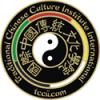-
Content count
56 -
Joined
-
Last visited
Posts posted by tccii
-
-
Here it is. I hope it's more or less what you meant... Let me know. The bibliography of Western-language works is found in the appendix at the end.
I will also post a copy in my website.
Fabrizio
Fabrizio,
Thank you for taking the time to compile the annotated bibliography. It is certainly well thought out and presented.
Although it is probably still a little too technical for a beginning Neidan student, it is fantastic as an introduction to primary texts on Neidan for those with a more academic interest.
Do you anticipate publishing a translation of the Bao Pu Zior Taiyi Jinhua Zongzhi in the near future?
Thank you,
Shawn
-
Shawn,
Please let me understand...
First, you mean a bibliography to Wang Mu's "Foundations of Internal Alchemy", right? -- Not to "Awakening to Reality", I guess, which already has a short bibliography.
Second, you mean a bibliography of Chinese texts quoted by Wang Mu? -- Not a bibliography of Neidan, I hope ...
Third, how many works?... Well, I would try to include all works quoted by Wang Mu, with at least a minimum of information on their authors.
Please let me know if this is what you meant.
Fabrizio
Fabrizio,
Certainly a bibliography of the Chinese texts quoted by Wang Mu would be useful. I also understand you already have a fairly comprehensive bibliography of Neidan which is 300+ works. However, I was heading toward something a little different...
Given the questions on this thread, it occurred to me that what might be really helpful for people new to Alchemy would be a concise introductory bibliography for aspiring Neidan practitioners. The questions on this tread are similar to those we get in the courses that we teach, namely "What books should we read?" Our usual answer is "Forget the books, practice! Spend the time you would be reading practicing." However, this is hard for Westerners, given the way most people are conditioned to learn.
So perhaps what is needed is a good, short, introductory annotated bibliography. Suppose we arbitrarily limited it to 10 works (or nine if you want a nice Taoist number). Let us also assume that the audience has limited access to university libraries, so the books should be readily available and not prohibitively expensive. You are probably in a fairly unique position to provide some great input given your, undoubtedly, extensive knowledge of the literature. Which works do you think would be essential to a novice practitioner in the field and why?
Does that help clarify and narrow the scope?
Shawn
-
 1
1
-
-
Fabrizio,
A concise, annotated bibliography would be a useful addition to "Awakening to Reality."
How few works do you think you could include to make it 1) a reasonably comprehensive overview and 2) accessible to the non-academic/specialist in the field?
Best regards,
Shawn
-
Fabrizio,
I'd like to say thank you for your work of translating and publishing Taoist texts in an accessible format. There are so few translated into the English language relative to the great number out there. It is also great that you took the time to answer questions about them. Although, from an editorial point of view, I may not agree with all your choices regarding how to render certain concepts in the English language, you have undoubtedly done a great service by providing them.
Best regards,
Shawn
-


Three critical issues in Taoist alchemy
in Daoist Discussion
Posted · Edited by tccii
The selected bibliography is great, my comment was not intended as a criticism.
By "technical" and "academic", I did not intend to refer to details of citation, which are essential for any sort of bibliography. In fact, those items which you cited tended to strengthen your work. I had expected a short list of books. You provided much more.
While there is no reason to be nasty, I don't think there would have been problem with you providing more critical commentary on some of the works.
Agreed. Unfortunately, many of the works in question are only available in the English language in translations of questionable quality. This is, in fact, why a bibliography from someone with your background could be so useful. For example, you suggest the "Long Hu Jing" and "Zhong Lu Zhan Dao Ji" in your bibliography. The only English language translation cited for both of these is by Eva Wong, giving her 2 of 9 of your selected bibliography. Would you say that these works are so important to an aspiring Internal Alchemy practitioner that this translation is better than nothing for the someone not fluent in Ancient Chinese or non-academic (i.e. someone not trained in Taoist studies), or would it be better to replace it with another text that has a sound English language translation?
Your point is quite valid here in the strict sense of defining "Internal Alchemy". Although I am not overly fond of Eva Wong's work, I have great appreciation for the effort involved. To look at it from a different perspective that might underscore some of the issues: What Wong says on page 6 of the above cited work is "Thus the early Taoist arts of longevity were a mixture of external alchemy... sexual alchemy... and internal alchemy, the method of transforming the body with breath control, calisthenics, and meditation." Rather than embarking on a "work of fantasy", do you think it possible that she simply made a mistake common among non-specialists in the field -- that is confounding the terms Internal Alchemy and Internal Cultivation?
Agreed. Most practitioners who only speak English have no idea of where to start.